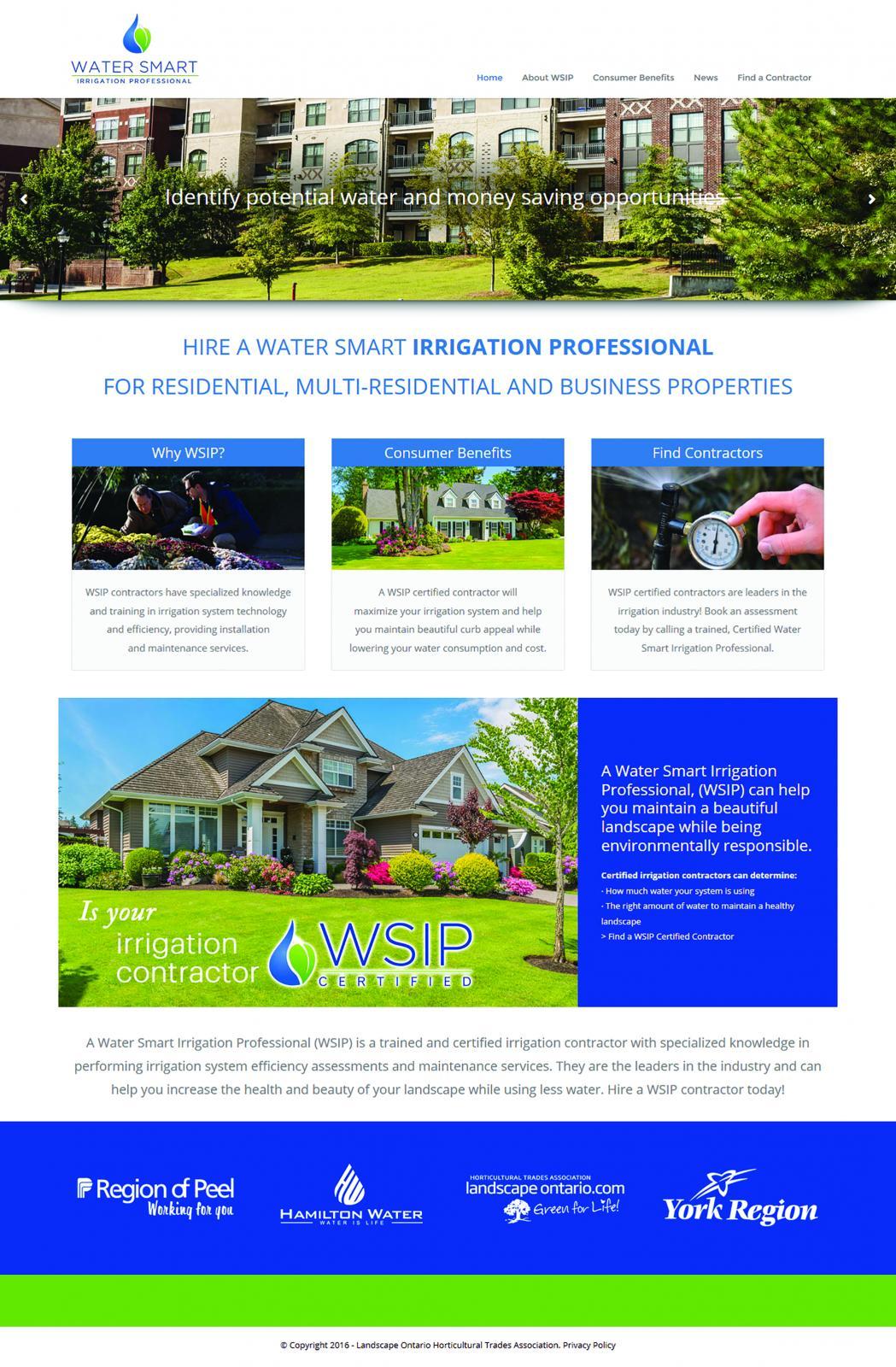October 22, 2016
Website promotes benefits of smart watering

The website also connects property owners with certified contractors from the Water Smart Irrigation Professional (WSIP) program who are trained to provide detailed assessments on water usage and recommend strategies to save water use and reduce costs. The recommendations include hardware upgrades, maximizing irrigation system life and efficiency, calculating optimal run times and providing a customized watering schedule and outlining potential savings and return on investment — and ensuring the initial beauty of the property is kept intact.
The WSIP program is a partnership between Landscape Ontario’s irrigation sector group, York Region, the Region of Peel and the City of Hamilton.
According to the website, an annual average water savings of $1,535, or 665 cubic meters, can be obtained by installing a smart water controller.
Reducing water usage not only benefits a property owner’s bottom line, it also helps to reduce stress on government infrastructure.
Jeremy Harris, technical analyst with the Region of Peel, says the program makes perfect sense for the region because it is “a proactive and innovative approach to address peak water demands.” Communities do not have unlimited budgets for water infrastructure projects and have focused on education and conservation to reduce peak demand.
“Many infrastructure elements are designed to meet peak demands which may only occur one or two days a year,” Harris says. Adding, “Inefficient and improperly maintained irrigation systems can waste large volumes of water and contribute to these peak demands. By leveraging and training the irrigation industry to perform irrigation system assessments, we are helping to reduce peak day water demands by driving market transformation and making efficient irrigation systems the norm.”
Bill MacDonald, owner of Angus Irrigation, a WSIP certified contractor in Hamilton, says “The WSIP program has simplified the process and made it easy for clients to immediately recognize dollar savings.” MacDonald believes in a few years the program will reach right across the province.
The WSIP training program includes both in-class and field components. Following certification, irrigation contractors are required to conduct at least five irrigation audits at client facilities, using the new methods learned in the program.
Contractors interested in the WSIP program can find more information online at horttrades.com/wsip.